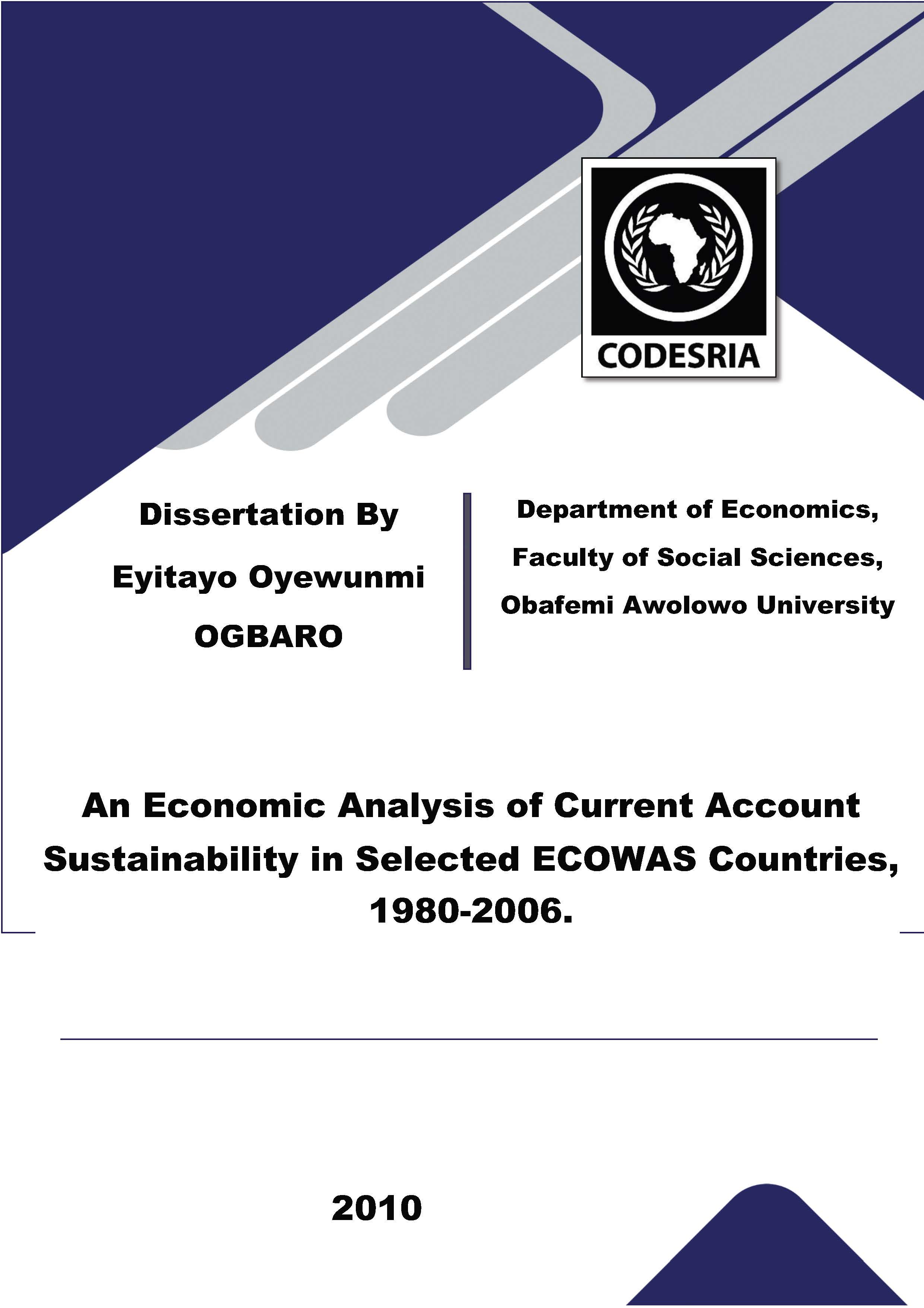An Economic Analysis of Current Account Sustainability in Selected ECOWAS Countries, 1980-2006.
Keywords:
Balance of payments, income, ECOWAS, 1980-2006, exports, economic analysis, balance of trade, current account, goods and services, sustainability, Togo, Senegal, Nigeria, Niger, Mali, Guinea-Bissau, Ghana, Cote d'Ivoire, Burkina Faso, BeninSynopsis
The study analyzed the trend and pattern of selected ECOWAS countries’ current account
balances from 1980 to 2006, examined the sustainability of these balances and determined
the direction of causality between the current account and net output changes for these
countries. These were done with a view to ascertaining whether these countries would be
able to overcome their huge external debt problem without any external crisis and thus be
on the right path to establishing a monetary union in the region.
The study used annual secondary time series data from 1980 to 2006 on ten ECOWAS
countries, collected from World Development Indicators (WDI) published by the World
Bank, 2007 edition. The ten countries which were selected on the basis of data availability
are Benin, Burkina Faso, Cote d’Ivoire, Ghana, Guinea-Bissau, Mali, Niger, Nigeria, Senegal
and Togo. The Vector-Auto Regression (VAR) technique was employed to analyze the
intertemporal model in order to generate the optimal current account series. Descriptive
statistics such as mean and range were used to capture the trend and pattern of these
countries’ current account balances, while visual inspection as well as correlation coefficient
and the probability values of the equality of the standard deviations of the actual and optimal
current account series were used to determine whether the actual series were sustainable
or not. The bivariate granger causality test was specified and estimated to determine the
direction of causality between current account and net output changes.
Downloads
References
Adedeji, O. S. (2001), “The Size and Sustainability of Nigerian Current Account Deficits”, IMF Working Paper, WP/01/87.
African Union (2009), “Status of Integration in Africa”.
Available at www.africa-union.org
Ahmed, A. D. (2006), “The Impact of Financial Liberalization Policies: The Case of Botswana”, Journal of African Development, 1(1), pp. 13-38.
Aristovnic, A. (2006), “The Determinants and Excessiveness of Current Account Deficits in Eastern Europe and the Former Soviet Union”.
Available at www.mpra.ub.uni-muenchen.de Baharumshah, A. Z., Lau, E. and Fountas, S. (2003), “On the Sustainability of Current Account Deficits: Evidence from four ASEAN Countries”, Journal of Asian Economics,
Vol. 14, pp. 465-487.
Bawumia, M., (2002), “The Feasibility of Monetary Union in the West Africa: A CGE Evaluation”, Paper presented at the Ad-hoc Expert Group Meeting on the Feasibility of Monetary Unions in African Economic Communities, Accra, 8-10 October.






